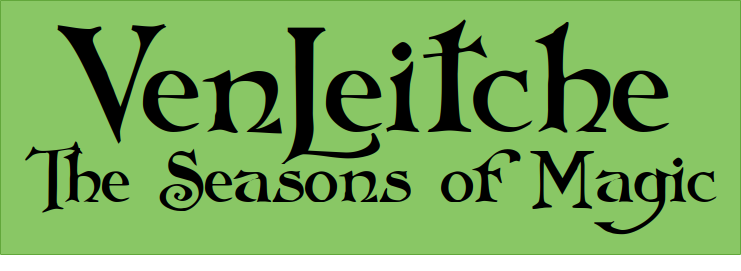Religious Practices 02
Religious Practices 02
Continuing the section on how the people of Venleitche live their lives, which in turn will determine Professions, Skills, and various other mechanics.
Everyday Observances
Most people say some kind of prayer at least once a day – on awakening, at mealtimes, before going to sleep for the night, the usual expression of thankfulness for the day, for being alive, for having food and not going hungry, that sort of thing. Given that the relationship with the Divine is considered to be a deeply personal one, there’s no standardization, and nobody gets to critique this sort of prayer except the Divine Themselves. It’s understood that the Divine are not jealous deities, nor are They insistent on regular performance. If people get busy and forget to say their usual prayer at the noontime meal, stuff happens, and the Deities will get over it faster than the mortals will.
All that said, there’s normally a prayer before any communal meal. Some prefer it to be said by the eldest at the table, some by the youngest, some by a person holding a special position within the group. This can be the local Theurge, or it might be a farmer who asks the blessing of the Divine on the food that has been produced before it’s consumed.
Observance of the faith tends to be more in actions than words. For example, no livestock farmer would shovel out the stalls and just dump the manure in the woods or in some large sloppy pile out back of the barn. It’s added to the first of a series of composting piles or bins, layered with old bedding straw and kitchen leavings, and turned regularly into the next bin over until it’s decomposed into fertilizer. Failure to connect an output, like manure, with an input, like fertilizer for the crop fields, would be ignoring the natural process of decay and recycling. Breaking down old clothes for quilting materials, melting down old tools to reuse the metal, and feeding food scraps to the livestock also helps to maintain the natural order. Capturing the rainwater off the house roof in barrels and using it for washing, cooking, drinking, watering the kitchen garden, keeps the water in the area where it fell, and means that much less water that has to be drawn from a well or a stream, reducing the human impact on downstream nature and other people. Eating what’s in season while it’s fresh, and preserving any excess for later, has been a practice in many cultures, and necessary for survival in most, but the people of Venleitche make it sacred, putting up pickles as an act of devotion.
Keeping the cycles of nature in balance, even in a human habitation where things are pretty far from their natural state, is a primary observance of Venleitche’s religion. Similarly, living modestly, not demanding more than a fair share of the resources available, and recognizing that those resources have limits are all religious actions. People live with a constant awareness that what they do has consequences, not only for themselves, but for others, and for the natural world that human habitation depends on.
Get Dynamic Balances: Venleitche
Dynamic Balances: Venleitche
An early-medieval Pagan gameworld with a mechanic driven by player agency
| Status | In development |
| Category | Physical game |
| Author | Wandering Beekeeper |
| Genre | Role Playing |
| Tags | agency, Fantasy, Medieval, neopagan, Tabletop |
| Languages | English |
More posts
- Development Status 2020-04-26Apr 26, 2020
- Playtest Today! (2020-04-25)Apr 25, 2020
- Development Status 2020-04-19Apr 19, 2020
- Development Status 2020-04-12Apr 12, 2020
- Venleitche Open Playtest with PregensApr 06, 2020
- Development Status 2020-04-05Apr 05, 2020
- Development Status 2020-03-29Mar 29, 2020
- Today's Playtest is Go!Mar 28, 2020
- Venleitche Cover v0.6Mar 24, 2020
- Development Status 2020-03-22Mar 22, 2020

Leave a comment
Log in with itch.io to leave a comment.